
Ecosistemas
Scope & Guideline
Unveiling the dynamics of nature through collaborative study.
Introduction
Aims and Scopes
- Biodiversity Assessment and Conservation:
Research that investigates the diversity of species in various ecosystems, including subterranean, aquatic, and terrestrial environments, with a strong emphasis on conservation strategies. - Impact of Climate Change:
Studies that explore how climate change affects ecosystems, species interactions, and biodiversity, particularly in fragile or unique habitats. - Ecosystem Services and Functionality:
Analysis of how ecosystems provide services to humans and the environment, focusing on restoration and management practices that enhance these functions. - Urban Ecology and Environmental Management:
Research addressing ecological challenges in urban settings, including the effects of urbanization on biodiversity and strategies for sustainable urban planning. - Technological Innovations in Ecology:
Development and application of new technologies, such as artificial intelligence and remote sensing, to monitor and manage ecological data effectively. - Participatory Science and Community Engagement:
Studies that incorporate community involvement in ecological research, promoting citizen science and collaborative conservation efforts.
Trending and Emerging
- Intermittent Rivers and Ecosystem Health:
A notable increase in studies focusing on the ecological dynamics of intermittent rivers, emphasizing their significance for biodiversity and ecosystem services. - Artificial Intelligence in Ecology:
Emerging applications of artificial intelligence and machine learning to analyze ecological data and improve conservation strategies are gaining traction within the journal. - Urban Biodiversity and Green Infrastructure:
Growing attention to urban ecology, including the role of green spaces and urban planning in supporting biodiversity and ecosystem services. - Climate Change Mitigation Strategies:
Research focusing on practical solutions to mitigate climate change impacts on ecosystems is increasingly prevalent, reflecting urgent global environmental challenges. - Community-Based Conservation Initiatives:
An emerging focus on participatory approaches to conservation, involving local communities in ecological research and resource management.
Declining or Waning
- Desertification Studies:
Research on desertification has decreased, indicating a potential shift towards more immediate ecological issues, such as climate change impacts and urban ecology. - Historical Ecology:
The exploration of historical ecological data and its implications for current practices has seen reduced attention, possibly as researchers focus on contemporary ecological challenges. - Traditional Agricultural Practices:
There is a waning interest in studies solely focused on traditional agricultural practices, as more emphasis is placed on sustainable agriculture and agroecological transitions. - Species-Specific Studies:
Research centered on individual species without broader ecosystem context appears to be declining, with a preference for studies that integrate species interactions and ecosystem dynamics. - Pollution Studies:
While pollution remains a critical issue, specific studies focusing solely on pollution without linking it to ecosystem health or biodiversity are becoming less common.
Similar Journals
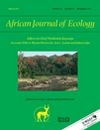
AFRICAN JOURNAL OF ECOLOGY
Illuminating Ecological Dynamics Across the ContinentThe African Journal of Ecology, published by Wiley, is a leading academic journal in the field of Ecology, Evolution, Behavior, and Systematics. Established in 1963 and continuing its vital contributions to the field until 2024, this journal serves as a premier platform for researchers and scholars to share groundbreaking studies that explore the intricate relationships within ecosystems, particularly in the African context. With an impressive Scopus Rank of #423 out of 721 and a Q3 Quartile ranking, it stands as a credible source of scholarly information, gaining recognition among peers for its rigorous peer-review process and impactful publications. While the journal is not open access, it remains influential in driving advancements in ecological research and providing insights vital for conservation efforts and biodiversity studies. Authors and readers alike will find that the African Journal of Ecology not only promotes scientific inquiry but also fosters a deeper understanding of ecological dynamics that affect our world.

RUSSIAN JOURNAL OF ECOLOGY
Illuminating the Path to Sustainable Ecological SolutionsRUSSIAN JOURNAL OF ECOLOGY, published by PLEIADES PUBLISHING INC, stands as a critical resource within the field of ecology, offering an array of research insights that span various ecological topics. With an ISSN of 1067-4136 and an E-ISSN of 1608-3334, this journal has been consistently disseminating knowledge since its inception in 1996, now converging towards 2024. Despite its current Q4 ranking in the Ecology, Evolution, Behavior and Systematics category, the journal has carved out a niche in the publication landscape, particularly for scholars focused on the rich and diverse ecological phenomena of Russia and surrounding territories. The journal aims to foster interdisciplinary collaboration and innovation by providing a platform for the dissemination of high-quality research. While it currently lacks open access options, readers can expect in-depth studies and analytical discourses that contribute meaningfully to the global understanding of ecological systems. With an impressive Scopus rank, this journal remains an important outlet for researchers, professionals, and students committed to advancing ecological science.

Ecological Solutions and Evidence
Advancing ecological understanding through empirical evidence.Ecological Solutions and Evidence, published by WILEY, stands as a leading platform in the field of ecology, environmental science, and sustainability, with a commendable reputation starting from its inception in 2020. Operating under rigorous academic standards, this journal has achieved notable distinctions by securing a Q1 category ranking in Ecology, Management, Monitoring, Policy and Law, and Nature and Landscape Conservation, making it an invaluable resource for researchers seeking to address pressing environmental challenges. With a current impact factor reflective of its influential articles, the journal features an international scope, focusing on innovative solutions derived from empirical evidence. Accessible to a global audience, the journal encourages open discourse in the field, further supporting researchers, professionals, and students striving to foster ecological sustainability and informed policy-making. Published in the United Kingdom, it aims to bridge the gap between science and application in real-world contexts, promoting actionable insights and interdisciplinary collaboration.
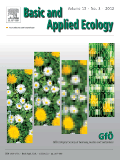
BASIC AND APPLIED ECOLOGY
Bridging theory and practice in the realm of ecology.BASIC AND APPLIED ECOLOGY, published by Elsevier GmbH in Germany, stands out as a premier journal in the field of ecology, evolution, behavior, and systematics. With its ISSN 1439-1791 and E-ISSN 1618-0089, the journal enjoys a distinguished reputation, evidenced by its classification in the Q1 category for Ecology in 2023 and impressively ranking #89 out of 721 in this domain according to Scopus. Since its inception in 2000, it has served as a vital platform for disseminating high-quality research that bridges theoretical insights and practical applications in ecology. Researchers, professionals, and students alike can look forward to the latest findings that not only foster a deeper understanding of ecological processes but also inform sustainable practices crucial for our environment. As the journal continues its journey through to 2024, it remains committed to advancing ecological knowledge and supporting innovative research in an ever-evolving field.
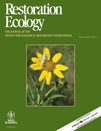
RESTORATION ECOLOGY
Championing the Revival of Ecosystems WorldwideRESTORATION ECOLOGY is a leading international journal dedicated to the science and practice of ecological restoration, published by WILEY. With an ISSN of 1061-2971 and a robust E-ISSN of 1526-100X, this journal has successfully positioned itself within the top quartiles (Q1) in significant categories such as Ecology, Evolution, Behavior and Systematics, and Nature and Landscape Conservation, showcasing its high-impact contributions to these vital fields. RESTORATION ECOLOGY has been actively disseminating critical research since 1993 and continues to thrive as it converges toward 2024. Ranked impressively within Scopus, it stands at #98 out of 721 in Agricultural and Biological Sciences and #30 out of 211 in Environmental Science, emphasizing its substantial influence and reach. While the journal operates under traditional access guidelines, it serves as an invaluable resource for researchers, professionals, and students alike, aiming to advance knowledge and practical solutions for biodiversity conservation and ecosystem rehabilitation globally. For those interested in the intersection of ecological theory and practical restoration applications, RESTORATION ECOLOGY is a key outlet for fostering dialogue and collaboration.

ECOLOGICAL RESEARCH
Bridging knowledge and action for a thriving planet.ECOLOGICAL RESEARCH is a prestigious academic journal published by WILEY, dedicated to advancing the field of ecology and its associated disciplines. Since its inception in 1986, the journal has consistently provided a platform for high-quality, peer-reviewed research, contributing significantly to the understanding of ecological systems and their complexities. With an impressive 2023 impact factor reflected in its Q1 ranking in the category of Ecology, Evolution, Behavior, and Systematics, it stands among the top journals in its field, as evidenced by its Scopus rank of #192 out of 721 and placement in the 73rd percentile. While accessible through standard subscription models, this journal plays an essential role in disseminating crucial findings and innovative methodologies to researchers, professionals, and students alike. With a commitment to fostering ecological knowledge and collaboration, ECOLOGICAL RESEARCH continues to influence ecological practices and policies, shaping the future of research in this critical area.
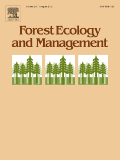
FOREST ECOLOGY AND MANAGEMENT
Championing Interdisciplinary Collaboration in ForestryFOREST ECOLOGY AND MANAGEMENT is a premier peer-reviewed journal dedicated to the integral study of forest ecosystems and their management, published by Elsevier in the Netherlands. With an impactful presence in the field, this journal boasts a prestigious Q1 ranking in multiple categories, including Forestry, Management, Monitoring, Policy and Law, and Nature and Landscape Conservation as of 2023. It addresses key issues relevant to sustainable forest practices, conservation strategies, and environmental monitoring, making it a vital resource for researchers, practitioners, and policymakers alike. The journal is indexed with an impressive Scopus rank, placing it among the top tier of titles in Agricultural and Biological Sciences and Environmental Science. While it does not offer Open Access options, its rigorous review process and high visibility make it essential for those seeking to stay abreast of the latest findings and trends in forest ecology and management. Published continuously since 1976, FOREST ECOLOGY AND MANAGEMENT aims to foster interdisciplinary collaboration and advance knowledge critical to the stewardship of forest resources in an ever-changing global landscape.
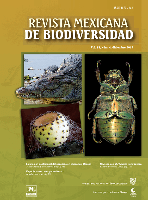
Revista Mexicana de Biodiversidad
Connecting Science and Conservation for a Thriving PlanetRevista Mexicana de Biodiversidad is a prominent academic journal dedicated to the field of biodiversity and conservation, published by the prestigious Instituto de Biología, Universidad Nacional Autónoma de México. Since its inception as an Open Access publication in 2005, it has aimed to disseminate high-quality research that advances the understanding of biological diversity in Mexico and beyond. With an ISSN of 1870-3453 and an E-ISSN of 2007-8706, the journal caters to a diverse audience, including researchers, professionals, and students, by providing vital insights into ecological studies, conservation strategies, and the sustainable management of natural resources. The journal is committed to fostering scientific collaboration and promoting the significance of biodiversity in addressing contemporary environmental challenges. By publishing innovative and impactful research, the Revista Mexicana de Biodiversidad plays an essential role in the global discourse on biodiversity conservation.
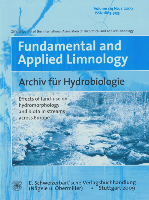
Fundamental and Applied Limnology
Innovating in Limnology: Where Research Meets Real-World ImpactFundamental and Applied Limnology is an esteemed academic journal dedicated to the exploration of freshwater ecosystems, bridging the gap between fundamental research and practical applications. Published by E Schweizerbart'sche Verlagsbuchhandlung in Germany, this journal has been a vital resource in the fields of aquatic science and ecology since its inception in 2007. With its ISSN 1863-9135 and E-ISSN 1863-9135, it provides a platform for researchers to disseminate significant findings related to limnology, contributing to a rich understanding of freshwater biodiversity, water quality, and ecological interactions. Although currently rated in the Q3 quartile for aquatic sciences and ecology as per the 2023 rankings, it remains a valuable outlet for interdisciplinary research and practical insights, facilitating critical advancements in environmental management. Open access options enhance its visibility and accessibility, making it indispensable for researchers, professionals, and students alike who are committed to advancing the scholarship in freshwater studies. Engaging with this journal not only opens doors to the latest research findings but also fosters collaboration and innovation in the ecological community.

Ecologies
Advancing ecological understanding for a sustainable future.Ecologies is a dynamic open-access journal published by MDPI, based in Switzerland, which focuses on the interdisciplinary study of ecological and environmental sciences. Since its inception in 2020, the journal has made significant strides in contributing to our understanding of complex ecological interactions, evolutionary processes, and the implications of biological diversity on ecosystem functionality. With its categorization in Q2 for Ecology and various Q3 rankings in related fields, it proudly offers a platform for innovative research that aims to address pressing ecological challenges. Researchers, professionals, and students can benefit from its comprehensive and insightful articles that are freely accessible, ensuring that critical findings are disseminated widely to facilitate informed decision-making and foster collaboration across disciplines. With the impact of climate change and biodiversity loss at the forefront of global discussions, Ecologies plays a pivotal role in shaping the future of ecological research and policy implementation.